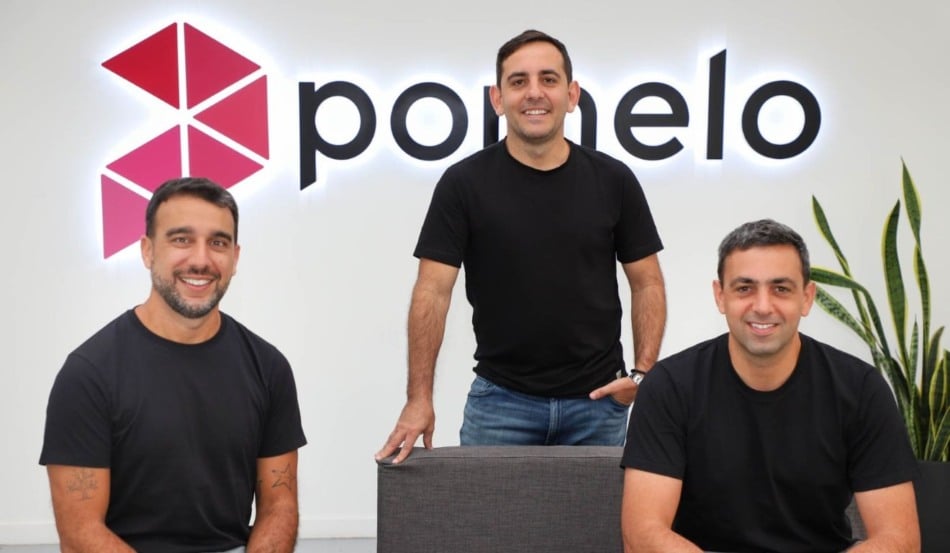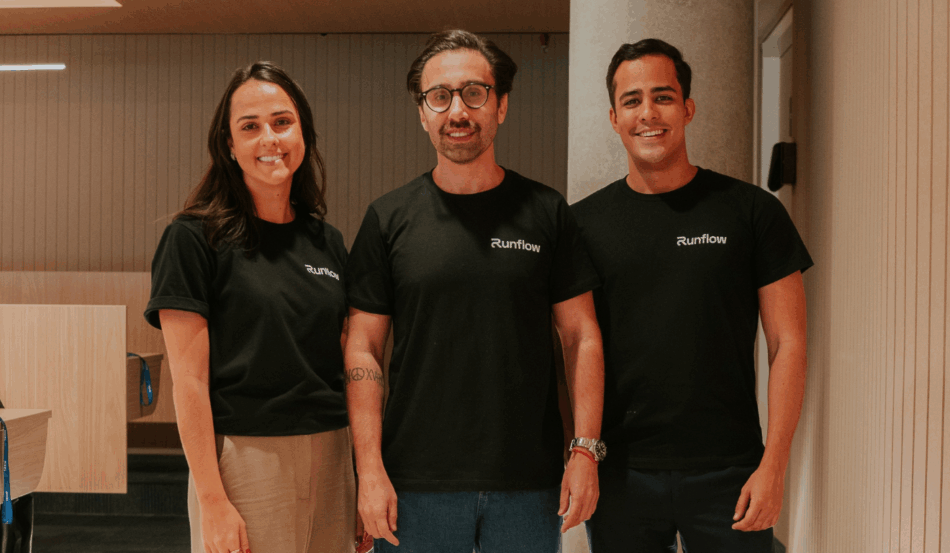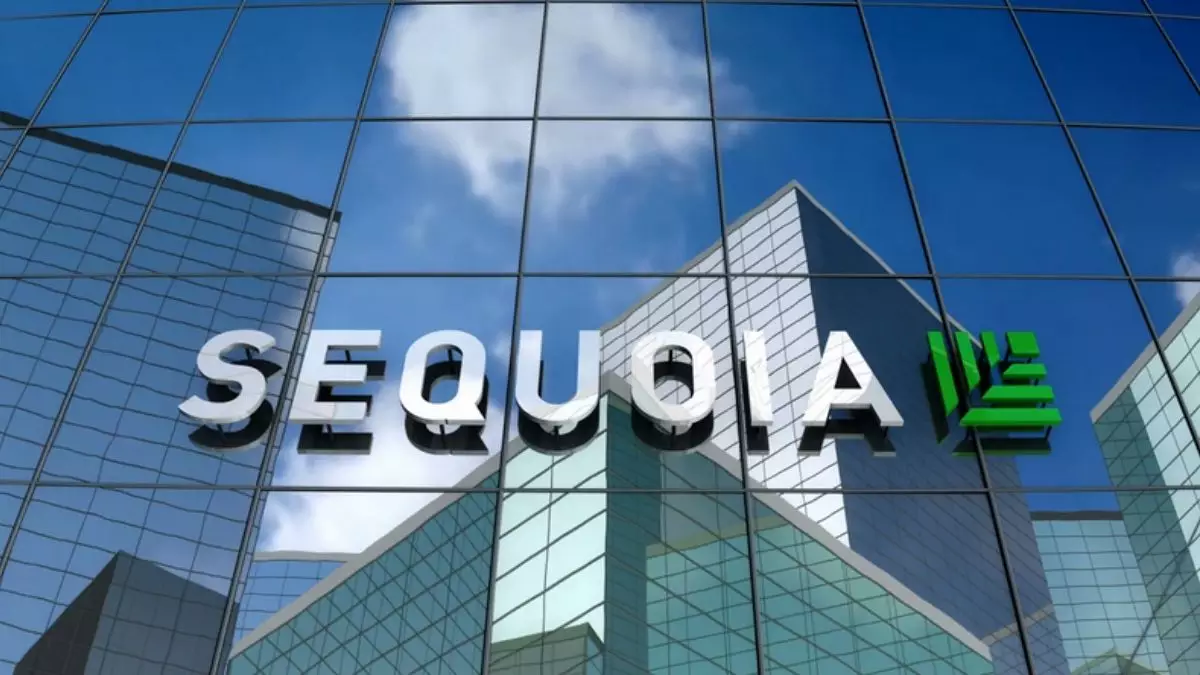
Despite the regulatory challenges facing the Brazilian cannabis market, startup accelerator The Green Hub is aiming to raise a Series B round, whilst boosting the global expansion of its portolfio companies and building synergies with other sectors such as agribusiness.
The global cannabis industry, which includes the legal production of threpeutical products, cosmetics, food and clothing, has been growing consistently in recent years – and is forecast to jump from $30 billion in 2020 to $95 billion in 2025, according to the global market research company Euromonitor. Consumers in several countries turn to products containing cannabidiol for various uses, from treating chronic pain and epilepsy to insomnia and mental health conditions.
Mindful of this market potential, the accelerator created in 2017 by chief executive Marcel Grecco currently has 12 startups in its portfolio active in various segments of medical and industrial cannabis. Three of them were created in-house, through the venture building model. The startups’ interest in the company grew significantly over the years: about to kick off its fourth acceleration batch, the firm received only 16 applications in the first year. In 2021, 70 companies signed up.
“The entrepreneurial part of the cannabis sector evolves faster than the legislation itself. In recent years we have seen an increase both in the market growth and in the interest in the opportunities”, says the accelerator’s partner and chief innovation officer, Alex Lucena, in an interview with Startups.
In addition to the acceleration program, The Green Hub invests and participates in angel and seed rounds in the companies in its portfolio. An example is Cannapag, a fintech that was born in the Brazilian Association of Cannabis Support (Abrace), the largest non-profit cannabis organization in the country, authorized by the Brazilian court to cultivate the plant for medicinal use. The startup, which has just raised an angel investment round, targets low-income individuals who have financial difficulties purchasing cannabis-based products.
The portfolio also includes psychedelic innovation firm Scirama. The biotech focuses on structuring products and therapies with microdoses of classic psychedelics like mushrooms, with psychiatric follow-up in controlled environments. By stimulating new brain connections based on the principle of neuroplasticity, the company wants to treat patients with severe disorders such as trauma and severe depression, as well as those with degenerative diseases such as Alzheimer’s. The accelerator initially invested $200,000 in the startup and will help it raise a new $5 million round.
The Green Hub itself is already planning its third funding round, after raising seed capital and a Series A round with a São Paulo-based family office and other strategic investors. In May 2022, the company will start a roadshow for a Series B in the United States. “The idea is to continue helping our investees with intellectual capital, services, and networking, as well as raising more capital to invest financial resources in the companies”, Lucena says.
In addition to accelerating startups, the company acts as a consultant for large foreign groups in the segment, which look for the technology industry in Brazil to advance their operations. Since its inception, The Green Hub has worked for various sector firms from the US, Israel and Canada.
“These companies are also keeping an eye on the market evolution,” the executive says, referring to the growth in the medical use of cannabis in Brazil – imports currently require a prescription and clearance from the local authorities. That market segment has reached over $12 million in sales last year, according to market data startup KayaMind.
In addition to the medicinal use, one of the major areas of interest for The Green Hub is industrial cannabis, which includes cannabis-infused food and beverages, as well as the textile sector. “At the moment, we are very focused on the medical front. The next wave will be industrial cannabis,” says Lucena.
The global potential of cannabis
Although the current legislation does not allow the country to explore all the commercial possibilities, local limitations accelerated The Green Hub‘s internationalization process. “Canada and other countries already understand that cannabis should be in the hands of the state, which regulates and collects taxes and controls quality, then in the hands of dealers. But this is still a topic surrounded by misunderstandings here”, Lucena says.
The Green Hub‘s global expansion kicked off in Uruguay, the first country in Latin America to legalize the recreational use of cannabis, and is now making progress around the legalization of edible products based on the plant. In addition to having an Uruguayan startup in its portfolio – CBeDifferent, which produces hemp-based cosmetics – the accelerator sees the country as its “living lab”. In Uruguay, The Green Hub creates MVPs and projects that could not be developed on a large scale in Brazil with local startups such as Adwa, a company from Viçosa, Minas Gerais, which focuses on technologies for cannabis production.
The accelerator’s first international efforts in the Southern Cone focused on Uruguay, but the hub soon expanded to Paraguay. According to Lucena, the country has a promising hemp production program, with labs and technology parks, as well as incentives for small producers.
“Paraguay is starting to emerge as a significant player when it comes to hemp production and transforming raw materials into inputs to many industries,” says Lucena. Hemp is a plant related to Cannabis Sativa, but contains a minimal amount of THC, which is the main psychoactive compound in cannabis and produces the “high” sensation.
The first experience outside Brazil set a positive precedent for the accelerator, which soon after took one of its startups to Canada: Blue Hops, a firm initially focused on the infusion of drinks and foods with cannabidiol, merged with Canadian company C.Brew, which produces cannabis-infused craft beer.
The new company, which is now called Blue Hemp, is led by Brazilians based in Canada and will use its expertise in the use of hops in food and beverages to develop lines of condiments, snacks, wines, olive oils, seasonings, and other products, with use of cannabis.
“Blue Hemp’s case is a great example of the entrepreneurship world, of how it is possible to think outside the box and have the courage to operate outside our country,” Lucena points out.
Surpassing political issues
Despite the economic potential of hemp production, the debate is progressing slowly in Brazil, according to the executive. A bill that regulates the activity in the country, is still stuck in Congress. “It makes no sense to ban a plant that is not related to the discussion around adult use,” the executive says.
“It is all interlinked: whenever the hemp subject comes up, one thinks of cannabis and then of marijuana. That automatic connection is at the heart of the current mindset. But every month, this way of thinking is falling apart around the world, including places like Argentina, Mexico, and Colombia, which have similar characteristics to Brazil when it comes to problems such as drug trafficking,” he points out.
The progress of that agenda in Brazil, according to the executive, has less to do with a conservative way of thinking and more with a perception of the market. Lucena adds that a regulated market would benefit about 3 million people and generate revenues of nearly $1 billion a year, according to New Frontier Data.
“Uruguay started on this almost two decades ago with [Pepe] Mujica, a far-left politician. Two governments have passed and today the country has a liberal, pro-market leader. When there is an understanding of the products and services industry built around a plant, this ideology talk doesn’t make much sense,” he points out.
To try to advance the matter across the political spheres, The Green Hub supports an institute, which managed to form a parliamentary front in the Legislative Assembly of São Paulo, with parties from various parts of the political spectrum discussing the evolution of cannabis-friendly laws around the world. “If you’re a mother and you think cannabis is a way of treating your child’s epilepsy, political views don’t matter. It is an agenda that transcends political issues and brings people from various points of view together,” Lucena points out.
Raising awareness
In addition to acting as an accelerator and consultancy, The Green Hub‘s focus includes education. According to Lucena, that includes several actions such as an annual seminar held at Civi.co, a São Paulo-based impact hub, where the company is based. With an audience that includes startups and large companies interested in opportunities around the cannabis market, Cannabis Thinking had former Brazilian president Fernando Henrique Cardoso as a speaker in its first edition.
In addition, the accelerator promotes a series of initiatives to raise awareness within the Brazilian innovation ecosystem when it comes to cannabis. One of them is a course on entrepreneurship in the sector, aimed at actors from other segments, such as agribusiness, education, and biotechnology. “We approach very technical subjects that entrepreneurs start to consider a migration once they get to know more about [cannabis], because there is still a lot to be explored in this market niche”, Lucena points out.
Reflecting on his expectations for the coming months, Lucena hopes that the debate on hemp production will advance in Brazil. “The discussion around Cannabis Sativa is quite related to the issue of adult use and a debate that is more extensive, which involves public safety,” the executive says. “I hope that in a year from now, we will be talking about the possibility of growing hemp for industrial use in our country. I am optimistic, as this should open up gigantic opportunities for agribusiness and produce many synergies with other markets.”
“Meanwhile, we are building the largest entrepreneurial hub in the sector in Latin America. There are many accelerators around the world doing work that is similar to ours, and we play according to the local legislation, with the perspective of globalization. We have a long-term vision, and we will get there”, he concludes.
(translation by Gabriela Del Carmen, editing by Angelica Mari)







